Waking up with a mouth as dry as the Sahara is a frustratingly common experience for many CPAP users. While your Continuous Positive Airway Pressure (CPAP) machine is a vital tool for managing sleep apnea, the persistent dry mouth it can cause is more than just an inconvenience—it can disrupt your sleep and diminish the effectiveness of your therapy. But what if there was a simple, transformative addition to your nightly routine? Using a mouth tape cpap nasal mask combination is proving to be a game-changer for countless individuals, offering a straightforward cpap dry mouth solution by tackling one of the primary culprits: nasal cpap mouth breathing.
This article will guide you through the science of why CPAP-related dry mouth occurs, how a small strip of tape can make a world of difference, and how to integrate this practice safely and effectively into your sleep wellness routine.
The Dry Mouth Dilemma: Why Your CPAP Causes Discomfort
CPAP therapy works by delivering a continuous stream of pressurized air through a mask to keep your airway open while you sleep. While incredibly effective, this constant airflow can lead to significant oral dryness, a condition known as xerostomia. Several factors contribute to this problem, especially for those using nasal or nasal pillow masks.
The Problem with Mouth Breathing
The primary driver behind CPAP-induced dry mouth is nasal cpap mouth breathing. When you use a nasal CPAP, the pressurized air is directed into your nose. If your mouth falls open, that air takes the path of least resistance and escapes, creating a constant, drying breeze across your oral tissues. This phenomenon, known as "mouth leak," not only causes severe dry mouth but also compromises the therapy itself. A 2024 study published in the Journal of Clinical Sleep Medicine confirmed that using mouth tape significantly improves CPAP adherence, reduces dryness, and decreases nightly awakenings.
Other Contributing Factors
- Mask Leaks: An improperly sealed mask can cause air to escape, which can be drying and reduce the machine's efficiency. Your CPAP machine may even increase its airflow to compensate for the leak, worsening the dryness.
- High Pressure Settings: Stronger airflow, which is sometimes necessary to keep the airway open, can have a more intense drying effect on the mouth and throat tissues.
- Reduced Saliva Production: The pressurized environment created by CPAP therapy may interfere with the natural signals that trigger saliva production, robbing your mouth of its natural lubricant.
The Power of Nasal Breathing: How Your Body is Designed to Breathe
Our bodies are engineered for nasal breathing, and for good reason. The nose is a sophisticated filtration and humidification system that prepares air perfectly for the lungs, a function the mouth simply cannot perform.
When you breathe through your nose, the air is warmed, moisturized, and filtered of dust, allergens, and pollutants. This process is crucial for respiratory health. Furthermore, nasal breathing promotes the production of nitric oxide, a vital molecule that helps widen blood vessels, improving oxygen circulation throughout your body. Studies show that consistent nasal breathing can lead to benefits such as lower blood pressure and reduced snoring.
Breathing through your mouth bypasses all these critical physiological functions. It delivers cold, dry, unfiltered air directly to your lungs, which can lead to irritation, a scratchy throat, and a less restful night's sleep. For children, chronic mouth breathing can even impact the development of the jaw and teeth.
The Simple Fix: How Mouth Tape Revolutionizes Your CPAP Experience
This is where mouth tape comes in as an effective cpap dry mouth solution. By applying a specially designed, skin-safe adhesive strip over the lips, you can gently encourage your mouth to remain closed throughout the night. This simple action forces your body to do what it does best: breathe through the nose.
For CPAP users with a nasal mask, this practice is particularly transformative. By preventing mouth leaks, the tape ensures that the pressurized air from your device goes exactly where it's needed—down your airway—instead of escaping through your mouth. This not only resolves the issue of dry mouth but also stabilizes the pressure, making your therapy more consistent and effective.
The Science Backs It Up
While anecdotal reports from users have been overwhelmingly positive for years, scientific research is now validating the benefits. A landmark randomized crossover trial found that patients using mouth tape with their CPAP increased their average nightly device use by over 50 minutes and significantly reduced symptoms like dry mouth, snoring, and nighttime awakenings. Another 2022 study published in Healthcare investigated the impact of mouth taping on individuals with mild obstructive sleep apnea who were habitual mouth-breathers. The results were remarkable. After taping their mouths during sleep, participants saw their median Apnea/Hypopnea Index (AHI)—a measure of sleep apnea severity—decrease by a significant 47%.
Beyond Dry Mouth: Unlocking Better Sleep and Wellness
The benefits of combining a mouth tape cpap nasal mask setup extend far beyond just preventing dryness. By ensuring effective therapy and promoting healthier breathing patterns, this practice can lead to a cascade of positive outcomes.
Users often report deeper, more restorative sleep, as they are no longer awakened by the discomfort of a dry mouth or the sensation of air leaks. This improved sleep quality translates into more energy and better focus during the day.
What About the Jawline?
A popular topic online is the claim that mouth taping can lead to a more defined jawline. The theory suggests that by keeping the mouth closed, you encourage proper oral posture, which may influence facial muscles over time. While some users and aesthetic practitioners see potential in this idea, it's important to note that this is not a scientifically proven method for changing facial structure. The primary, evidence-backed benefits of mouth taping relate to improved breathing, sleep quality, and therapy effectiveness. Any aesthetic changes should be considered a potential secondary benefit of restoring natural, healthy oral posture.
A Word on Bouche: Your Partner in Better Breathing
When choosing a mouth tape, quality is paramount. You need a product that is not only effective but also safe and comfortable for nightly use. This is where Bouche stands out. Bouche Wellness Inc. is a premium wellness brand committed to improving health through science-backed, non-invasive tools that support better breathing and deeper sleep.
Our flagship mouth tape is specifically designed with the CPAP user in mind. It is a medical-grade tape made from hypoallergenic materials in North America, ensuring it is gentle even on sensitive skin. Bouche tape is CPAP compatible and provides a secure yet comfortable seal, making it the ideal partner for your therapy. We understand that effective sleep therapy depends on comfort and consistency, and our product is engineered to integrate seamlessly into your nightly ritual, helping you achieve the restorative sleep you deserve. For a comprehensive approach, the Breathe Better Kit combines these tools to optimize your nighttime breathing.
Frequently Asked Questions
Q: Can I use mouth tape with my CPAP nasal mask?
Yes, absolutely. Using mouth tape with a nasal or nasal pillow mask is a highly effective strategy to prevent mouth leaks, reduce dry mouth, and improve the overall effectiveness of your CPAP therapy.
Q: Will it improve my CPAP effectiveness?
It very well can. By keeping your mouth closed, the tape prevents the prescribed air pressure from escaping. This ensures your airway remains consistently open, which can lead to a lower AHI (fewer apnea events) and better sleep quality.
Q: How do I prevent dry mouth with CPAP?
- Use a Humidifier: Most modern CPAP machines have a heated humidifier. Ensure it's filled with distilled water and set to a comfortable level.
- Try Mouth Tape: This is a top solution for preventing mouth leaks when using a nasal mask.
- Consider Nasal Strips: If nasal congestion contributes to mouth breathing, using nasal strips can help open passages for easier breathing.
- Check for Mask Leaks: Ensure your mask fits snugly without being too tight to prevent air from escaping.
Q: Is mouth tape safe with sleep apnea?
For many, particularly those with mild OSA, it is considered safe and beneficial. However, if you have moderate to severe sleep apnea, are prone to significant nasal congestion, or have other respiratory concerns, it is crucial to consult your doctor before trying it.
Q: Should I tell my sleep doctor?
- Yes, you should always keep your healthcare provider informed about any changes you make to your sleep apnea treatment regimen.
- They can offer personalized advice and ensure this method is appropriate for your specific health needs.








